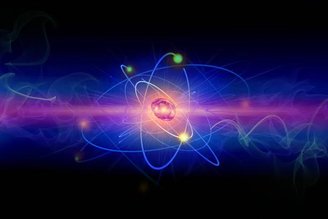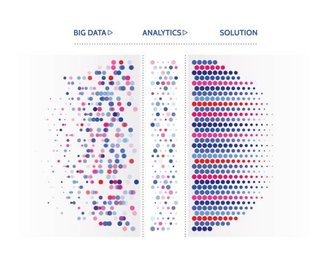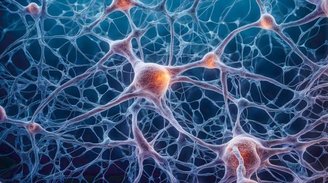At some point in your existence, whether in school, church, or your personal entertainment, the great question about life, truth, and the universe may have already presented itself to you: How did life originate on Earth?
A small collection of atoms came together and through some generative impulse, whether divine or scientific, life was created. So what exactly is the recipe for this comforting combination?
The truth is that all explanations have their pros and cons, some are more reliable than others. Learn more about How entropy may play a fundamental role in the existence of life on Earth and a very strange theory.
A little entropy and at work, life in the universe
In 2014, Jeremy England, then an assistant professor of physics at MIT (Massachusetts Institute of Technology), developed a theory regarding the role of entropy in the emergence of life.
According to his theory and calculations, The “balanced” distribution of entropy, acting with a certain stability over a group of atoms, may be the ignition engine of life..

The speed at which this system disintegrates, together with an external energy source such as the Sun, can create order in these molecules and trigger processes that will lead to life.
In his article published in the magazine Physical Review Letterstells This is the process by which atoms self-organize and how entropy plays a fundamental role in making life possible..
It is important to remember that the entropy reported by England refers to the “pure” concept of thermodynamics, where entropy is the quantity that measures the degree of disorder of particles in a system.

It is important to make this distinction because some other sciences borrow the physical term and give other meanings to this quantity. It can create some confusion depending on what you mean by entropy..
England made a “joke” about his theory in an interview with Quanta Magazine, saying: “If you shine light on a random cluster of atoms for long enough, it wouldn’t be surprising if one day we get a blueprint.”
We have no news about his theory for now, but entropy remains the subject of study to consider what other atomic and cellular interactions might benefit or arise through its action.
And everything was created from nothing
You may be surprised, but I’m not talking about Christian mythology or any other creationist mythologies. It’s a strange idea that emerged centuries ago due to observations of natural phenomena or poor hygiene.
The famous theory of spontaneous generation, or abiogenesis is a theory that states that inanimate matter can create life.. Aristotle was also a supporter of this idea. According to this theory, old rags can produce mice, stones can produce mushrooms, flies can come out of rotten meat, etc.

But today we know that this is not possible and just in case, pay attention to the dust under your sofa, but if you still want to test abiogenesis more effectively, forget about the food under the sink or the dirty dishes. Two days later you will be in for a surprise.
Once the joke is over, it is clear that these phenomena, seemingly plausible at the time, are no longer obvious today. It is more about the existence of small interactions between living things, their reproductive habits and the search for food..
You might even think that the theory of entropy put forward by England also has an abiogenic background, but his proposal directly affects what constitutes us as living or non-living beings, the atoms that are the basic substance of everything.

So, in addition to an external energy source, we also need to have the right set of atoms to self-organize into life. However, in a slightly more organized and predictable area, biology also studies biogenesis, the process by which the living world originates from other living things and evolves over thousands of years.
But the theories and fields do not end there. Many branches of science address this fundamental issue, But there is still no strong enough theory to explain where the cornerstone of life was laid..
Studies like Jeremy England’s, among many other researchers, have only scratched the surface of the complex fundamental question of how life arose and why only our little blue planet seems to be blessed with it.
Follow the latest research and theories on the origin of life on planet Earth on TecMundo. Until later!
Source: Tec Mundo
I’m Blaine Morgan, an experienced journalist and writer with over 8 years of experience in the tech industry. My expertise lies in writing about technology news and trends, covering everything from cutting-edge gadgets to emerging software developments. I’ve written for several leading publications including Gadget Onus where I am an author.













